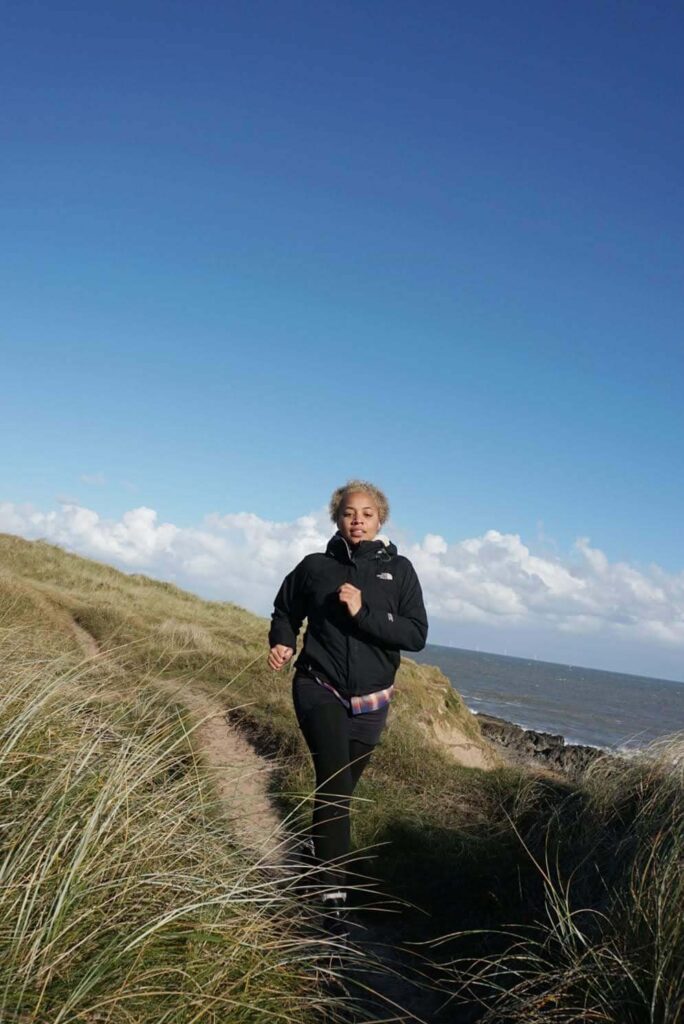
Travelling with MS: My RRMS travel checklist
In 2016, I was diagnosed with Relapsing-Remitting Multiple Sclerosis (RRMS) whilst volunteering in California. With one diagnosis, my new life abroad was taken from me and everything changed overnight. Understandably worried, my mum offered to fly from The Bahamas to support me (even though she was battling cancer!). I was prepared to stop volunteering and travelling and I opened myself to the possibility of becoming housebound in a matter of weeks. With this attitude, I did not fathom that I was to develop my own style of travelling with MS: My RRMS travel checklist within the year.
I phoned my mum and told her not to come. She had more than enough on her plate. I did not break my commitment and stop volunteering and I am not housebound. I am still travelling with MS after 4 years of trial and error! Rather than a packing list, although there are a few items to pack, this is how I prepare for trips now that I have MS.

Relapsing-Remitting Multiple Sclerosis looks different for everyone
Everyone experiences RRMS differently. For that reason, your travel checklist might not look the same as mine. At the moment I am in the remitting (less severe symptoms) stage, I am stable and my care needs are quite low.
By stable, I mean that up until quite recently I have not had any new lesions (scar tissue on the brain due to a MS relapse) for years and I am tolerating my DMT (disease-modifying therapy) quite well. Still, at this stage I have identified two aspects of my MS that I need to take into consideration before I travel.
This post may contain affiliate links and/or ads which means at no additional cost to you, I may receive compensation for qualifying clicks and/or purchases. I do not receive compensation from Camphill for this post nor is Camphill affiliated with this post. This post represents my opinion and my personal experience.
Travelling with MS: How my Relapsing-Remitting Multiple Sclerosis impacts my trips
First, I have to take my medication on-time, twice daily with food or I will experience severe abdominal cramps, nausea and intense hot flushes, leaving me visibly red and often with an itching sensation all over my body. I typically experience the latter 3 side effects on a daily basis but they are far less severe when I avoid taking my meds on an empty stomach.
These potential side effects mean I cannot be as flexible as I used to with meal times and I need to pack a sandwich, for example, if I know I won’t be near a cafe or restaurant. My stomach seems to respond well when it is lined with some form of carb and fat before I take my daily capsules.
Second, I cannot predict when it will happen but if I walk or run for a certain distance or length of time, I experience an unusual, itching sensation. Usually it is on my legs but sometimes it spreads across my chest and back. It typically lasts for about 10 to 20 minutes and the closest thing I can compare it to is the sensation that insects are crawling on the affected area(s).

Like many other MSers, I experience altered sensations or dysaesthesia when my immune system attacks my Central Nervous System
With MS, for some unknown reason, our immune system attacks the myelin which covers and protects our nerves and this alters how messages are passed through our nervous system. These altered sensations or dysaesthesia are created as a result of the brain attempting to interpret the damaged, foreign signals by relating it to a sensation the body has experienced before like itching, burning, numbness and the feeling of being squeezed. Even though it feels like the itching is due to skin irritation or crawling insects, it’s actually a result of nerve damage in the brain or spinal cord.
I first experienced this itchy sensation at around 15 or 16 at my secondary school’s walk-a-thon fundraiser. What’s your first instinct if you feel something crawling on you? To swat it, scratch or check the skin for the little invader.
Scratching brings relief while I am doing it but once I stop, the sensation increases in intensity and I find I’ve now irritated my skin by scratching it. I can either stop and wait till the sensation passes or keep moving and wince through it. All things my travel buddies might want to know beforehand. Then, in the event I experience any of these on holiday I won’t have to explain it while I’m experiencing discomfort.

Once you have a general idea when you’ll travel, let your medical team know
To avoid holiday plans conflicting with MRIs, Neuro appointments, check-ins with the MS Nurses, meds deliveries or blood work, kindly give your medical team advance notice of the general time you expect to take-off.
This gives you the opportunity to learn any emergency procedures, particularly what you should do if you have a relapse abroad. My MS Nurse gave me a few numbers to phone in the event of a relapse. I don’t think she meant to say that the nurses will fly wherever I am to be by my side but it might help to have the support of a medical professional.
When travelling with MS, make sure that you have enough medication to last the duration of your holiday
As a precautionary measure, I like to request two additional weeks of meds in the event of a cancelled flight or any other occurrence which might require that I extend my time abroad.
This is an extreme example but after my North American road trip, my return to the UK was delayed as I was stuck at home in The Bahamas due to Hurricane Dorian last September. Now the likelihood of this happening to me again is rare but the important thing is that my spare medication came in handy.
Plan your trip with sufficient downtime to recover

Now that you have ticked the boxes in the medical section of the checklist, you can turn to the day to day of the actual trip itself. Quite often there is a want to do everything and try everything abroad but it’s important to look after every aspect of your health especially when you are away from home and your medical team.
Rather than planning a holiday with activities every moment of the day, be proactive and leave some gaps in the itinerary. Don’t say I’ll do it when I get there because emotions and curiosity run rampant on holiday and you might be too engrossed to hear your body say “I need to rest.”
Be honest with your travel buddies about your needs on holiday when travelling with MS
It’s unfair to expect others to read our minds, pick up on all of our moments of discomfort or notice our MS flushes every time. It’s best to have an open conversation in the planning phase about what your needs might be whilst on holiday. If you can’t tolerate the heat or are unable to walk long distances, that’s totally fine but let your travel buddies know to avoid confusion or miscommunications down the line.
It’s important to be on the same page when travelling with others. That’s not to say that certain adventures cannot happen. Maybe it means sitting out certain activities and treating that activity’s slotted time as recovery time. See above!
When I was diagnosed with RRMS in 2016, I thought my family was destined to look after me, that I needed to break my commitments and that I was unable to travel freely again
I was very wrong. RRMS looks very differently for everyone. I can still travel but it takes a bit of additional preparation. Travel often requires a certain level of flexibility. If you can tolerate a few extra steps in order to visit the destination of your dreams, then I think that you will manage just fine.
It’s taken a wee while but I have worked out my current needs in this RRMS travel checklist in order to continue travelling travel with MS. RRMS and MS in general, manifests itself differently in every individual. Life with MS changes you but some things, like regular travel, you can still have–it will require a tad more preparation and support.
Your list might look similar to mine or very different based on your symptoms and your specific travel needs. Whether you have MS, a chronic illness or any other diagnosis which requires extra planning, I would love to learn how you prepare for travel. How do you manage it all and still have an enjoyable long weekend away or holiday?
Yours in travel,
B the Travelling MS xx




